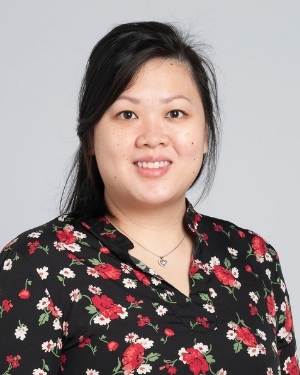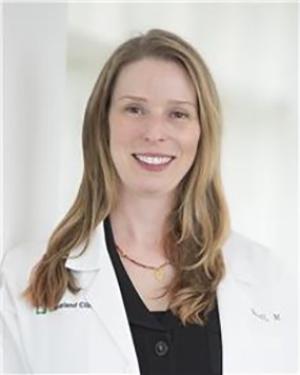Research News
04/11/2024
This lab forges new fields to prevent viral chronic pain and generational effects
Dr. Javier Chen is spearheading groundbreaking research in infection biology, securing grants and publishing top-tier papers to pioneer proactive measures against future outbreaks.

Infectious diseases extend beyond a singular period of sickness, or a hospital stay. Viruses have the potential to leave lasting and devastating effects that bring patients back to their doctors again and again, with repercussions echoing through generations.
Researching the intricacies of viruses and other pathogens is the key to understanding and preventing the long-term harm they cause. Cleveland Clinic’s Weiqiang “Javier” Chen, PhD, Infection Biology, stands at the forefront of this field. Since establishing his lab in the spring of 2022, Dr. Chen has been reshaping virology’s landscape.
"Many often think of virology solely in terms of preventing initial infection, but we cannot overlook the challenges faced by those who survive viral onslaught,” says Dr. Chen. “Our research is dedicated to ensuring that people who have battled infectious diseases not only survive but also thrive.”
Coining "osteovirology"
Viruses around the world can leave a lasting impact on our bones, often causing lifelong problems. Despite their prevalence, most of these viruses don’t have a cure or good treatment. Sometimes the only way to avoid them is by fending off insects that carry viruses with bug spray.
The first step to developing new treatments is to understand how these viruses wreak havoc on our bones. The “J-Chen Lab” is studying many of these viruses from the ground up, creating models we can use and forging new clinical connections with doctors to fully understand how viruses can cause bone problems. Dr. Chen coined the term “osteovirology” in a recent Nature Microbiology paper, naming a groundbreaking field dedicated to unraveling how viruses trigger bone-related diseases.

“Most researchers focus on deadly viruses and neglect the others,” says Dr. Chen. "I can personally tell you that bone pain can be some of the worst pain you’ll ever feel. It’s debilitating. It’s degrading. It affects all aspects of your life.”
By investigating how viruses including insect-transmitted viruses and SARS-CoV-2 affect bone health, researchers in the J-Chen lab are collecting data essential to developing targeted therapies and treatments. Their research also seeks to understand how common mosquito-transmitted viruses can cause long-lasting joint abnormalities that resemble rheumatoid arthritis.

Dr. Chen's exceptional contributions in the field of viral bone disease were acknowledged in January 2024 when he received his first multi-million-dollar grant from the NIH to study how Zika virus infections during pregnancy impact children’s skulls. This grant is built upon preliminary data generated from a prior “Pathway to Independence” award from the National Institute of Dental and Craniofacial Research. Dr. Chen, together with Violette Recinos, MD, section head of pediatric neurosurgery at Cleveland Clinic, and Suan Sin “Jolin” Foo, PhD, specializing in maternal-fetal virology, seek to understand viral and nonviral causes of craniosynostosis, where the skull’s multiple plates prematurely fuse and develop abnormally.


Studying craniofacial defects in infants affected by Zika
Drs. Chen, Recinos and Foo are investigating the processes underlying craniofacial defects in infants with congenital Zika syndrome. Zika virus infection during pregnancy impacts how babies develop and disrupts the delicate balance of how bones form, potentially leading to craniosynostosis.
The J-Chen Lab is pioneering research into poorly understood molecular pathways behind craniosynostosis, whether it’s caused by a virus or another condition. Their approach aims to characterize what causes craniosynostosis both in viral and nonviral contexts, arming clinicians with the knowledge and tools necessary to thwart the condition.
The collaborative research team leads projects at the intersection of maternal- and osteovirology, translating their discoveries from bench to bedside.


“We cannot afford to ignore challenges faced by patients who survive viral infections” - Javier Chen, PhD

Top: Javier Chen, PhD
Middle (left to right): Chineme “ChiChi” Onwubueke ; Jolin Foo, PhD; Debora Familiar-Macedo, PhD
Bottom (left to right): Ivonne Melano, PhD; Sai Saridey; Camila Caetano, PhD
Auspicious Dragon: Smaug
Featured Experts
News Category
Related News
Research areas
Want To Support Ground-Breaking Research at Cleveland Clinic?
Discover how you can help Cleveland Clinic save lives and continue to lead the transformation of healthcare.
Give to Cleveland Clinic

